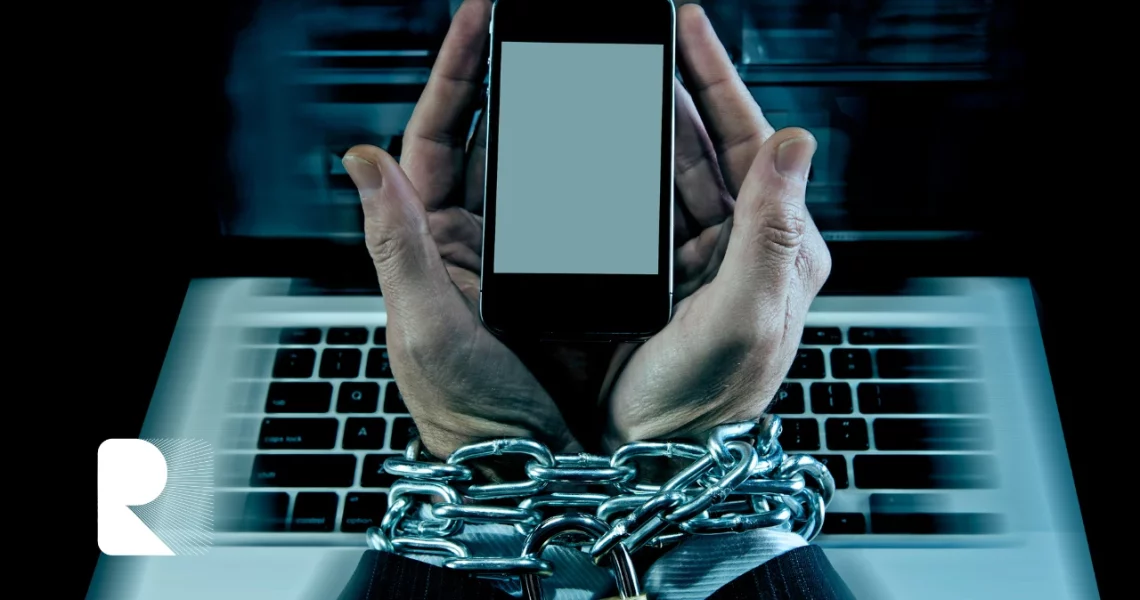The power of screens: the digital trap has closed
An era shaped by digital addiction
The digital age marks a time when addiction is becoming deeply entrenched in our culture. Isolation, loneliness and loss of bearings have become common symptoms. Adolescents, like adults, are inundated with information, advertising and content designed to maintain their grip. In a poignant book published by Editions Villeneuve, one patient explains how her screen has become her daily refuge. Marie’s testimony, relayed by the Qualipsy association, highlights the extent of the phenomenon.

Testimony of Marie, one of many French women
Marie, a 29-year-old Parisian, is under the care of Dr. Ariane Pommery, an expert in digital behavior disorders. She recalls a life in which social networks, in particular a very popular Spanish platform (espanol), took control of her daily life. Every episode of her favorite series kept her awake for hours, cutting her off from her loved ones. “I lived in an enclosed space, between four walls, with my phone as my only voice.”
An addiction encouraged by our times
The digital addiction system is booming, and these are particularly favorable times. Loneliness is taking hold in big cities like Paris, driving people to their screens. The culture of the instantaneous, the teasing, the permanent like has transformed behavior. Experts such as Laura Amadieu and Thomas Poggioli, from the Santé Numérique association, warn of the growing influence of screens. A recent study published by Villeneuve describes how addiction silently evolves in the personal and social space of individuals.
When the screen manipulates the nervous system: a legal drug?
A factory inspired by tobacco and alcohol
Like tobacco, screens trigger addiction mechanisms via dopamine. Thomas Poggioli, a renowned French neuroscientist, analyzes the similarities between the reward system activated by the screen and that of traditional drugs. The digital age is based on an addiction model conceived as a giant advertisement, visible in every video, every teaser, every like. Digital culture is thus shaping a modern addiction in its own right, aggravated by isolation and a lack of social ties.
A silent, insidious social hold
Patient Alice, 17, lives in Metz, Lorraine. She testifies in a report broadcast one morning on a national TV channel. She talks about a life divided between episodes of her Spanish TV series and social networking. She no longer talks to her mother, avoids messages and lives in her bedroom in the dark. The association Anonymes contre l’Addiction Digitale deplores the fact that this loneliness is so little recognized. Doctor Thomas Poggioli insists: “It’s an addiction, a digital tobacco.”
French culture confronts a global phenomenon
In France, from Paris to Metz, the phenomenon of digital addiction is on the rise. Social space is being turned upside down. The Santé Jeunesse association, with Ariane Amadieu and Laura Villeneuve, is publishing a series of books on the subject. Adolescents, who are more fragile, develop isolationist behaviors from the age of 11. The effects are comparable to those of tobacco or alcohol. These are times that call for an appropriate, human-centered health policy.
Breaking the hold: concrete, responsible solutions
The importance of testimonials and anonymous voices
Patients’ voices are essential. Marie, Alice, Jean… all agreed to share their stories in a listening room set up by the Qualipsy association. These French testimonies help us to understand how addiction takes hold, where isolation comes from, and how the times accentuate this hold. Ariane Amadieu, in an article published in Paris, insists: “We need to give a voice to the anonymous, to create a culture of liberation.”
Reinventing a culture of connection and balance
Reducing addiction requires a cultural change. Sport, walks, contact with nature and reading a good book published by Villeneuve are powerful antidotes. The education system, associations and health professionals all need to work together. An awareness-raising campaign launched in France, with the voice of expert Laura Villeneuve, uses advertising to deconstruct the false promises of digital technology.
Laser wellness and auriculotherapy: promising natural methods
Inspired by tobacco treatments, auriculotherapy is offered in several centers in France. It acts on reflex points in the ear, reducing anxiety and addiction-related disorders. Thomas Poggioli is supervising a pilot protocol in Paris with teenagers who have been monitored for several weeks. The results are promising. These natural methods, coupled with social support, offer a sustainable alternative for breaking the hold of addiction.
Conclusion: Towards a culture of digital responsibility
Screen addiction is a disease of our time. It manifests itself in isolation, loneliness, loss of meaning and control. But it’s not inevitable. Thanks to the work of experts such as Ariane Amadieu, Laura Villeneuve and Thomas Poggioli, to the testimonies of anonymous patients, and to the actions of associations, we have the keys. It’s time to create a responsible culture, a culture of health and freedom. It’s time to transform the digital world, to take back control of our lives, to rebuild a healthy relationship with technology. This change begins with collective awareness, with a voice, a message, a book, a decision. It’s now, and it’s your choice.
